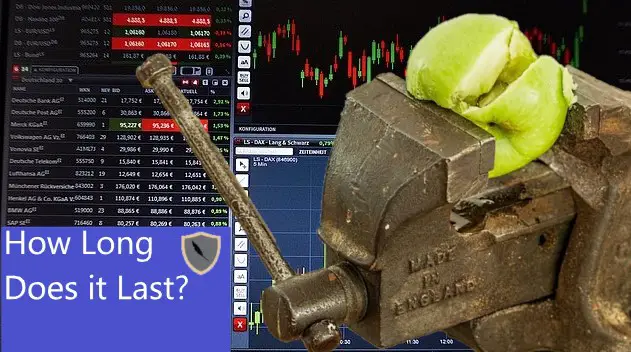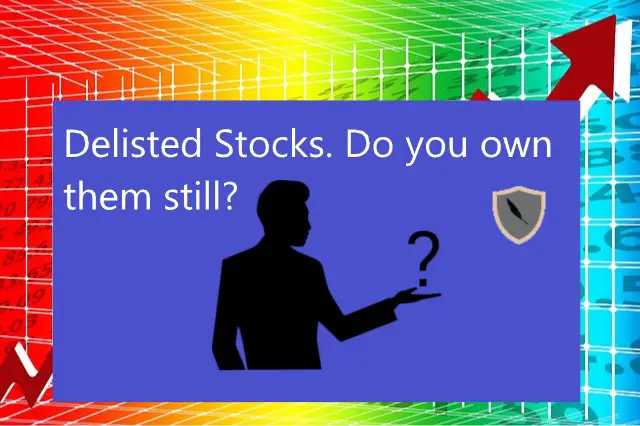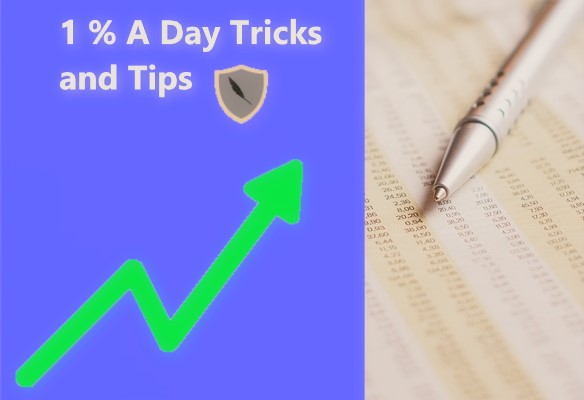Checking your stocks everyday is one of the worst things that average retail traders can do for their financial future. A 2015 study published in the Investment Analysts Journal demonstrates that for the average investor and trader, constantly checking their portfolio increases the odds of substantial losses. This article aims to help demonstrate why constantly checking your stock portfolio is actually hurting you.
There are 4 reasons why constantly checking your stock portfolio is a bad idea.
- Constantly checking your stock portfolio increases the odds you will lose money
- It takes time for investments to work
- It will increase stress and the odds of an emotional reaction
- Constantly checking your stock portfolio could lead to short term capital gains tax
Investing is one of the easiest things you can do. The hardest thing about investing however is giving your portfolio time to start generating you money. It takes time and patience to become a good investor. The goal of Chronohistoria is to teach people how to generate above average investment returns. I routinely publish articles on investment research, methodologies/strategies, and tips/tricks so that you are better prepared to profit in today’s crazy market.
Feel free to sign up for the free newsletter to remain up to date on all things investing.
Without further ado, let’s jump right into it.
Constantly Checking Your Stock Portfolio Increases The Odds You Will Lose Money
Here is a dark secret of the stock broker industry.
When a person’s account or position is making money on the screen it will flash bright green. Likewise if the account or position is losing money the screen flashes bright red.
This is no coincidence. The reason behind this is because it creates panic for the retail trader and investor who think they need to move to either save their portfolio/position or try and maximize their return.
In fact in 2017 the Swedish House of Finance published an article that goes over just how effective this color coding strategy was on influencing retail investors to actively trade their money on the brokers platform.
If you open your stock portfolio right now you will instantly see how much money you have either made or lost. For the average retail investor they are heavily impacted by this. Imagine you check your portfolio and see a -2% loss in bright red letters.
You will probably try to act to stop what’s happened. This however is a trap because whenever you touch your portfolio you run the risk of losing money, either directly or over the long term.
When building a stock portfolio a professional will create a puzzle where each position works to compliment another. If you touch this you run the risk of stopping the potential economic machine from making you money.
The secret to stop constantly checking your stock portfolio is to build a good portfolio upfront with good investments. If you’re interested I wrote up an entire article on how to pick good investments. Build a good portfolio and you won’t have to worry.
It Takes Time For Investments To Work
Rome was not built in a day. The same could be said for a good investor’s stock portfolio.
Investing takes time, lots of it. In fact the best way to generate wealth is to start investing early and to let your portfolio compound overtime.
The reason why time is so important is because it actually lowers your risk if you build a portfolio the correct way. A good stock portfolio is built on solid principles and investments that will only grow overtime. If you built the portfolio right then over a period of years your total risk would actually start to decrease in the portfolio as it increases in value.
For example, let’s say you only bought the SPY ETF. The SPY is a collection of the top 500 U.S companies weighted by market cap. This means that one share of the SPY actually buys you 500 tiny shares of companies such as Google, Microsoft, Tesla, Amazon, and Facebook/Meta.
As the above image demonstrates overtime the SPY will increase in value as the U.S economy increases. That means that if you let your portfolio grow without checking it, the risk that you will lose money will decrease passively over time, while you also gain money.
When you check your portfolio however you increase the chance of interrupting this effect. Remember that it takes time for investments to work.
Constantly Checking Your Stock Portfolio Will Increase Stress And The Odds Of An Emotional Reaction.
When you see that you are losing money in the stock portfolio how does that make you feel? Chances are not very good. You get an emotional reaction.
Several studies have been done on investing psychology and how it can lead to significant losses in the markets. Simply put, emotional investing is a losing strategy.
This is why you should carefully evaluate your portfolio not on a daily basis, but rather on a weekly or monthly basis. If you did your homework properly and built the portfolio correctly then you will notice a gradual increase in money over time.
If you are investing in positions that need to be constantly checked then chances are you are doing it wrong. Yes, it’s possible for professional traders and investors to make lots of money through active involvement in the markets but those people are the 1%.
For the average retail investor entering into extremely volatile positions is a bad idea because of the emotional strain associated with them. Investing for the hope that the position will increase in value intraday is often a fool’s game.
Further, stress is a killer. Investing and trading does not have to be a stressful activity. When done right you will find that growing wealth using the markets is actually one of the most passive and stress-free ways to achieve financial goals.
If interested I wrote up an article on the 9 professional ways to reduce stress and remain sane in the markets.
Stress can creep up on people over time. It’s incredibly important to relax and not invest emotionally. Over time this will make you a better investor.
Constantly Checking Your Stock Portfolio Could Lead To Short Term Capital Gains Tax
When you constantly check your stock portfolio you run the risk of increasing your trading activity. In the United States if you have not held your position for longer than a year before you sell it you have to pay an increased tax on your gains. This is called short term capital gains tax.
Depending what tax bracket you fall into this means that you might be paying upwards of 37% on your gains, even if it was only $1,000. This directly translates into decreased profit at the end of the year.
Now if you didn’t constantly check your stock portfolio and let it grow naturally you would only have to pay at max 15% in tax. That’s a massive decrease in potential taxes just from holding your positions for longer. Not constantly checking your stock portfolio in this case saves you money in the long term.
This is because every time you check your portfolio you increase the odds of performing a trade. When you sell an asset within the year off one of these trades you have to pay more taxes.
In this case its pretty simple, just build a good portfolio and let it grow for longer than a year. The result will be a drastically larger increase in profit due to having to pay less taxes.
Conclusion:
There you have it, constantly checking your portfolio might be doing more harm than good.
The secret to making sure you don’t have to constantly check your portfolio is to build a good portfolio from the start. This takes time to do properly, however with some time and patience I know you can do it as well.
Here at Chronohistoria I teach people how to generate above average returns in the markets. I routinely publish articles that go over investment research, methodologies/strategies, and tips/tricks of the trade so that you are better prepared to profit.
Feel free to sign up for the free newsletter to remain up to date on all things investing.
Further, you can check out some of the other articles below.
-
How Long Does a Short Squeeze Last? (3 Answers)

What is the time frame for you short squeeze? Well here is everything you will ever need to know to determine how long it will last.
-
Why You Still Own a Stock After It’s Delisted and How to Sell It

Do you still own a stock after its delisted? How do you sell it? Don’t worry the stock is still worth money and here is how to sell.
-
Can You Make 1% A Day in the Stock Market? (3 Steps)

Making 1% a day in the stock market is hard but defiantly doable. Here are 3 simple steps to helping you achieve this return.
Until we meet again, I wish you the best of luck on your investing journey.
Sincerely,


